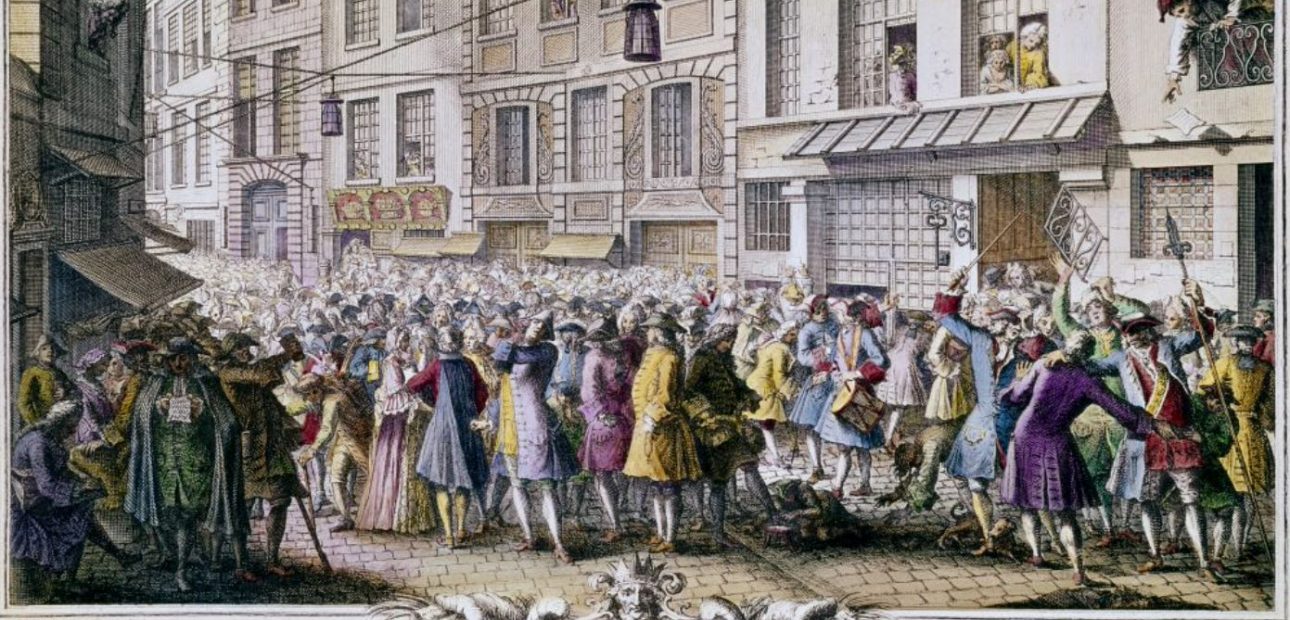
The Mississippi Bubble was a financial bubble that occurred in France in the early 18th century. It was caused by a speculative frenzy surrounding the French Mississippi Company, which was founded by John Law. Law was a Scottish financier who had gained a reputation for financial innovation, having previously founded a bank in Scotland. He was invited to France in 1716 to help the country deal with its financial problems.
Under Law’s guidance, the French Mississippi Company was established in 1717 with the aim of exploiting the resources of the French colony of Louisiana in North America. The company was granted a monopoly on trade with Louisiana and was allowed to issue banknotes backed by the value of the company’s shares.
The value of the company’s shares soon skyrocketed, as investors rushed to buy them in the hope of making a profit. The frenzy was fueled by Law’s promotion of the company and his promise of enormous returns. The value of the company’s shares continued to rise until it reached a peak in 1720, after which the bubble burst and the value of the shares plummeted.
The Mississippi Bubble was a financial bubble that occurred in France in the early 18th century. It was caused by a speculative frenzy surrounding the French Mississippi Company, which was founded by John Law. Law was a Scottish financier who had gained a reputation for financial innovation, having previously founded a bank in Scotland. He was invited to France in 1716 to help the country deal with its financial problems.
Under Law’s guidance, the French Mississippi Company was established in 1717 with the aim of exploiting the resources of the French colony of Louisiana in North America. The company was granted a monopoly on trade with Louisiana and was allowed to issue banknotes backed by the value of the company’s shares.
The value of the company’s shares soon skyrocketed, as investors rushed to buy them in the hope of making a profit. The frenzy was fueled by Law’s promotion of the company and his promise of enormous returns. The value of the company’s shares continued to rise until it reached a peak in 1720, after which the bubble burst and the value of the shares plummeted.
There were several causes of the Mississippi Bubble, including:
-
Speculation: The bubble was caused by a speculative frenzy, as investors rushed to buy shares in the company in the hope of making a profit. This speculative behavior was fueled by Law’s promotion of the company and his promise of enormous returns.
-
Government intervention: The French government played a significant role in the Mississippi Bubble. The government supported Law’s scheme and gave the Mississippi Company a monopoly on trade with Louisiana. The government also allowed the company to issue banknotes backed by the value of its shares, which helped to fuel the speculative frenzy.
-
Lack of regulation: There was little regulation of financial markets in France at the time, which allowed Law and the Mississippi Company to engage in risky and speculative behavior without fear of repercussions.
The effects of the Mississippi Bubble were severe. When the bubble burst in 1720, many investors lost everything. The French economy also suffered, with the collapse of the Mississippi Company leading to a period of economic decline. The French government was also severely impacted, as it had invested heavily in the company and was left with a large debt.
The Mississippi Bubble provides us with several important lessons about financial bubbles, including the importance of regulation, the dangers of speculative behavior, and the need for transparency in financial markets. It also highlights the risks of government intervention in financial markets and the importance of maintaining an independent and impartial regulatory environment.
While the causes and effects of the Mississippi Bubble may differ from modern financial bubbles, there are still important lessons that can be learned. Modern financial bubbles are often caused by speculative behavior, lack of regulation, and government intervention. By understanding the causes and effects of historical financial bubbles like the Mississippi Bubble, we can better understand and prevent modern financial bubbles.
Causes of the Mississippi Bubble
There were several causes of the Mississippi Bubble, including:
-
Speculation: The bubble was caused by a speculative frenzy, as investors rushed to buy shares in the company in the hope of making a profit. This speculative behavior was fueled by Law’s promotion of the company and his promise of enormous returns.
-
Government intervention: The French government played a significant role in the Mississippi Bubble. The government supported Law’s scheme and gave the Mississippi Company a monopoly on trade with Louisiana. The government also allowed the company to issue banknotes backed by the value of its shares, which helped to fuel the speculative frenzy.
-
Lack of regulation: There was little regulation of financial markets in France at the time, which allowed Law and the Mississippi Company to engage in risky and speculative behavior without fear of repercussions.
Effects of the Mississippi Bubble
The effects of the Mississippi Bubble were severe. When the bubble burst in 1720, many investors lost everything. The French economy also suffered, with the collapse of the Mississippi Company leading to a period of economic decline. The French government was also severely impacted, as it had invested heavily in the company and was left with a large debt.
Lessons from the Mississippi Bubble
The Mississippi Bubble provides us with several important lessons about financial bubbles, including the importance of regulation, the dangers of speculative behavior, and the need for transparency in financial markets. It also highlights the risks of government intervention in financial markets and the importance of maintaining an independent and impartial regulatory environment.
Regulation is crucial in preventing financial bubbles. A lack of regulation can lead to a situation where companies or individuals engage in risky and speculative behavior without fear of repercussions. This was the case with the Mississippi Bubble, where there was little regulation of financial markets in France at the time.
Conclusion
The Mississippi Bubble was a historical event that had significant impacts on the French economy and serves as an important lesson on financial speculation. By understanding the causes and effects of the Mississippi Bubble, we can better understand and prevent modern financial bubbles.
